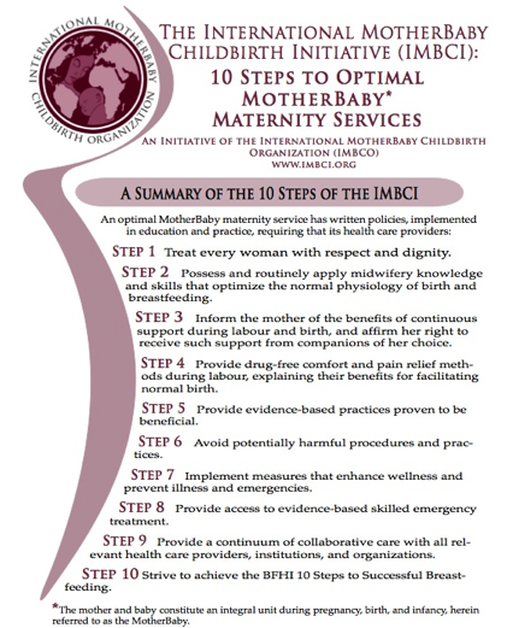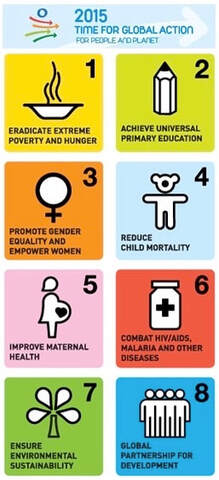International MotherBaby Childbirth Initiative (IMBCI)
|
For a text version of the 10 Steps Summary click here.
For the 10 Steps full text version click here. MotherBaby Rights
|
IMBCI Translations
Associated IMBCI Step
|
The IMBCI and the UN Millennium Development Goals
|
The IMBCI also contributes to achieving at least five of the eight UN Millennium Development Goals targeted for 2015:
Goal 1: Eradicate extreme poverty and hunger. The IMBCI promotes optimal maternal nutrition and infant feeding. Goal 3: Promote gender equality and empower women. The IMBCI calls for empowering women through education andrespectful, caring treatment during pregnancy, birth, and the postpartum period. Goal 4: Reduce child mortality Goal 5: Improve maternal health and reduce the maternal mortality ratio by ¾. The IMBCI calls for skilled birth attendance, effective emergency care, and reserving medical intervention for cases where potential benefits outweigh potential harms to reduce infant and maternal morbidity and mortality, and emphasizes wellness and prevention measures before, during, and after birth to increase maternal and infant survival and health. Goal 6: Combat HIV/AIDS, malaria, and other diseases. The IMBCI calls for education and prevention measures, and for informed birth and feeding practices that reduce the transmission of HIV from mother to baby. |


